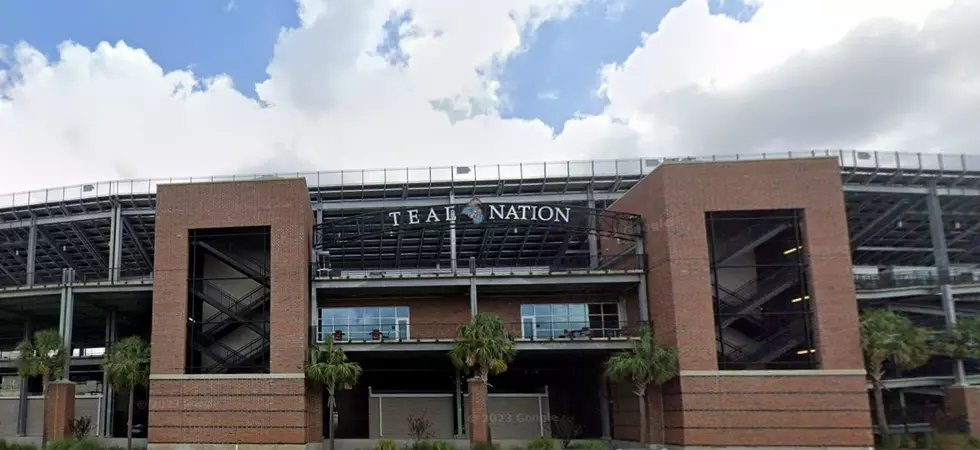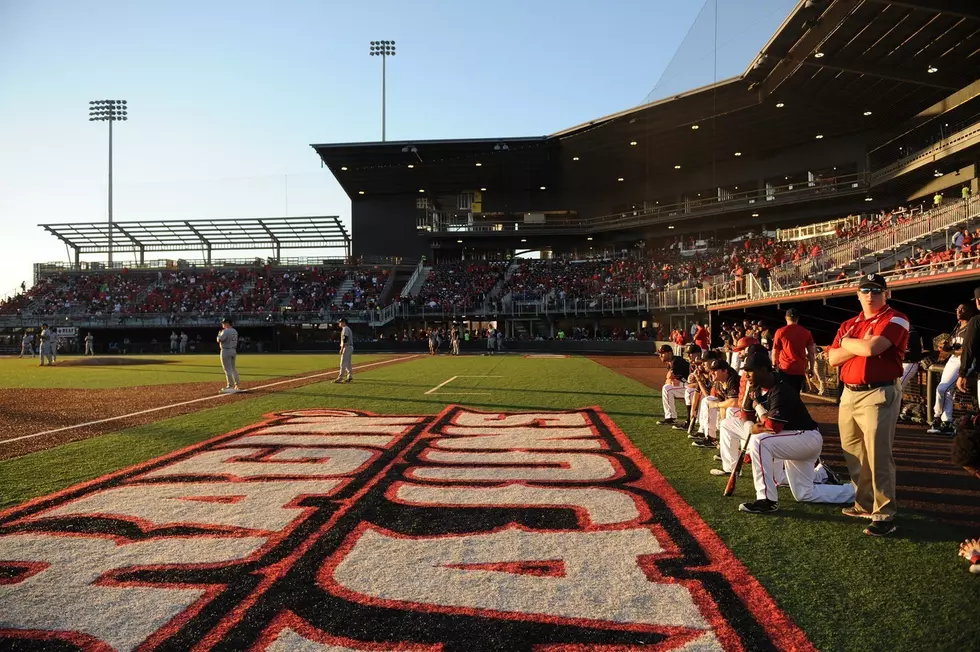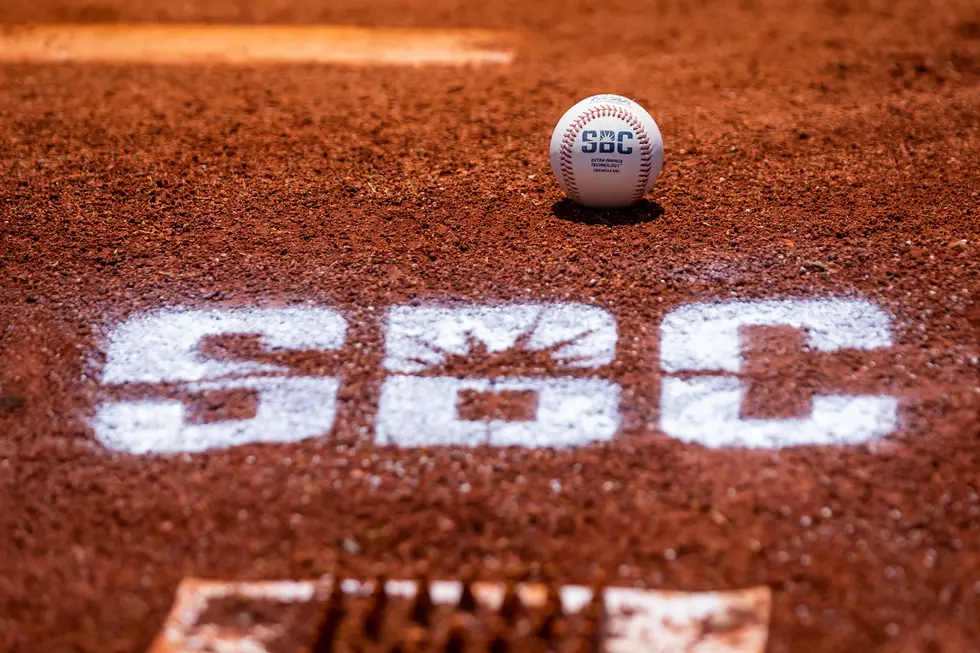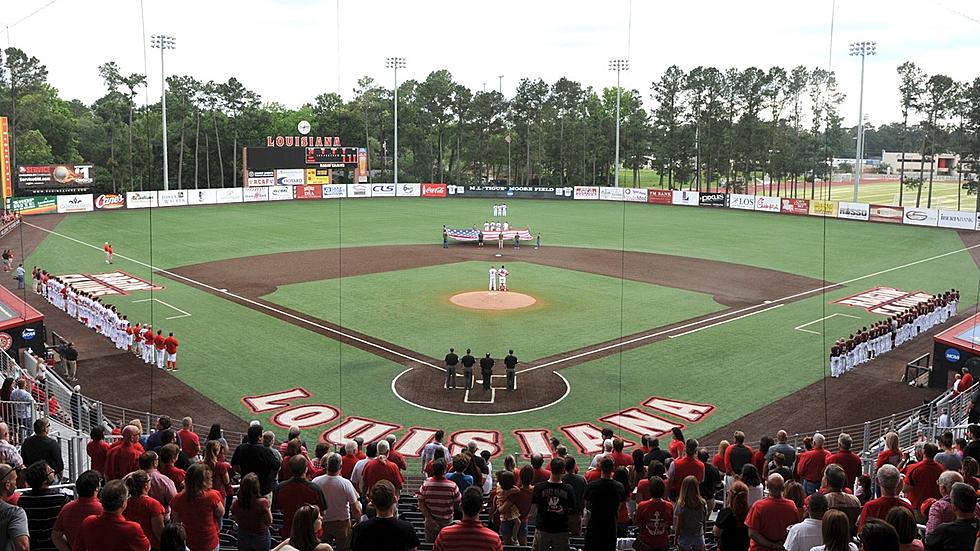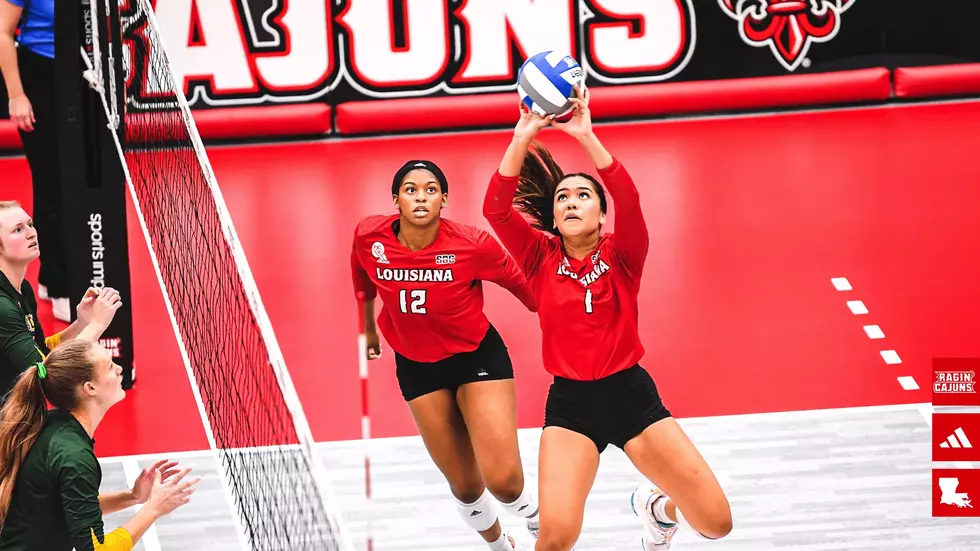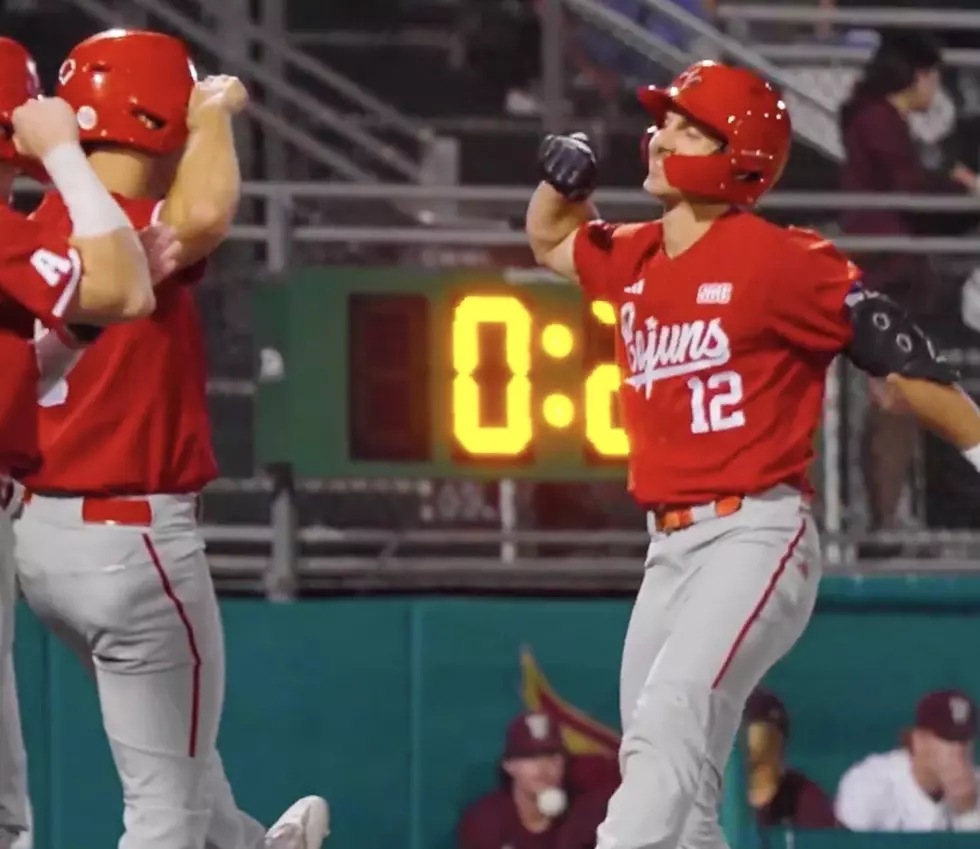
From the Bird’s Nest: What if………?
In the life of a mid-major baseball team, you can have good seasons. But if you're going to have special seasons, things have to go just right. The difference in depth of mid-major schools and those in conferences like the SEC, ACC and Big XII is usually the difference.
Louisiana's Ragin' Cajuns have had some good years in baseball over the last decade. But did you ever stop to think about what would have happened with one win here, one more healthy player, one more break...
The seasons from 2000-2010 are what they are. But what if.........
2000: The Cajuns begin the season 28-2. Their ranking reaches #4 in the country. The Cajuns, who weren't a great hitting team (although they could hit with power), and frankly, weren't very good defensively at all. Yet, they won a regional, upset the #1 team on the planet in a super-regional and wound up finishing tied for third in the College World Series. They did it with a great pitching staff, despite questions concerning a third starter.
But what if Phil Devey had returned for his senior season?
The lefty from Montreal is the all-time strikeout king in Cajuns history. And, in both 1998 and 1999 he was the ace of the staff. He earned wins over Texas and Rice in the 1999 regional and super-regional. Drafted in the fifth round by the Los Angeles Dodgers, Devey elected to turn pro. In that '99 season, Devey was 10-1 with a 3.14 ERA and only allowed 99 hits in 129 innings. He struck out 165, a team record that will probably never be broken.
With Devey in 2000, the Cajuns would never have had issues with a third starter. Eric Templet, Nick Webb and later, Andy Gros all tried. But having to start Gros left a void in the Cajuns bullpen. In the College World Series after beating Clemson, Webb started and the Cajuns had an early 6-0 lead. They lost 19-9. With Devey, there's a good chance it would have been the Cajuns, not Stanford, that would have played LSU for the national championship.
2002: The Cajuns went 17-7 in Sun Belt play and wound up 37-19 during the regular season. They did it despite the fact that only four players started as many as 50 of the Cajuns' 62 games. They played multiple outfielders, multiple infielders and multiple catchers. They hit just .267 but stole an incredible 145 bases. And, they did it without a third starter. Justin Gabriel and Andy Gros won 19 regular season games between them, losing only eight. They started 30 games. Ten, that's right...ten other Cajuns got starts during the season as Tony Robichaux tried to find a reliable third guy. The Cajuns got an NCAA regional bid and Gabriel opened with a win over Tulane. Gros shut out LSU ( for the second time) the next day. The Cajuns were one game away from a super-regional for the third time in four years. But they were beaten twice on the final day.
But what if Tim Ramon had been healthy?
Ramon was the Cajuns' ace in 2001, and the fact the Cajuns didn't make the conference tournament that year certainly wasn't because of his efforts. Ramon was dominant throughout the season and one of his more memorable games was one he lost. He hooked up with Middle Tennessee's Dewon Brazelton on a Friday night at Tigue Moore Field and matched the Raiders' ace pitch for pitch before finally losing 2-0 in ten innings. Ramon only finished 6-4, but had a solid 3.39 ERA. He struck out 84 in 91 innings, walking only 24. But in 2002 Ramon developed arm trouble and was shut down for the year after four starts. With a healthy Ramon, the Cajuns might have been a #1 seed in a regional somewhere and certainly would have had a shot to advance out of Baton Rouge even if they stayed a #2.
2003: It was a crazy season. The Cajuns had a new hitting coach in John Szefc and it was a tough transition for the club as they started 7-21 and were hitting less than .240 midway through the season. But then the bats came alive. The Cajuns wound up with five players hitting .290 or better. And, with Andy Gros, Jordy Templet, Kevin Ardoin and Austin Faught handling most of the starting duties and Kraig Schambough at the end of the game, the Cajuns went on a roll and won 20 out of 24 to set up a showdown on the final weekend with South Alabama for the Sun Belt title. The Cajuns wound up the season 30-30 after going 2-2 in the conference tournament.
But what if Corey Coles' hit would have been ruled fair?
Trailing 6-5 on that final Saturday, Coles hit a ball down the third base line with the bases loaded that appeared to win the game for the Cajuns. But the home plate umpire ruled it foul, setting up a firestorm that resulted in the ejection of the normally mild-mannered Szefc. Coles hit into a double play on the next pitch and USA won the game and the title, 6-5. Had Coles hit been ruled fair, the Cajuns would have won the title, had a different seed and even if they had gone 2-2 in the tournament, probably would have gotten an NCAA bid based on their regular season title.
2004: This Cajuns team could hit. They had a .309 team batting average, which at the time was the best in the Robichaux era. And, they hit with power. Their 78 home runs were just five fewer than the Omaha team, and they did it in twelve fewer games. Four different Cajuns hit double digit homers. The Cajuns slugged over .500 and had 227 extra base hits. The pitching staff was a work in progress throughout the season. Only Kevin Ardoin was a mainstay on the staff, starting 16 games. After trying Josh Kohrs and even moving Kraig Schambough into the starting rotation, the Cajuns finally settled on Ardoin, Patrick Green and Ian Pecoraro. The Cajuns suffered a couple of rainouts in league play and finished fourth at 11-11. That fourth place finish cost them an NCAA bid despite a 34-23 record.
But what if Dallas Morris and Justin Bourque had stayed healthy?
Morris hit .373 with 12 homers and 51 rbi. He slugged .740. But Morris broke a bone in his foot and missed the last eighteen games of the season. Bourque hit .333 and slugged .570. But he hurt his knee and missed the final fourteen games. Despite solid seasons from Justin Merendino, Kevin Preau, Phillip Hawke and Rhett Buras, the Cajuns simply didn't win enough conference games. With Morris and Bourque healthy, they're probably an NCAA tournament team.
2005: Without question, the best offensive team the Cajuns have had under Robichaux. They hit .327 as a club. They hit 155 doubles, 23 triples and 65 homers. They had ten, that's right, ten .300 hitters. Six Cajuns hit .325 or better. Ten players had double digit doubles on the season. Seven Cajuns drove in at least 40 runs. The team's 551 runs scored and 774 hits in 67 games are school records. The Cajuns steamrolled through the regular season and won the Sun Belt with room to spare. Robichaux put Jared Salazar as his midweek starter and Salazar won six games. Micah Cockrell was used as a starter and reliever and was a fine compliment to Schambough in the bullpen. Cockrell won five games and saved three. Schambough won five and saved five. The Cajuns had to figure out a third starter (again) and tried several before settling on a freshman left hander named Hunter Moody. But the Cajuns stumbled toward the end of the season and were a #3 seed at Tulane.
But what if Kevin Ardoin hadn't gone south and Austin Faught had stayed healthy?
Ardoin was on his way to being the Sun Belt Pitcher of the Year when, suddenly down the stretch, he just lost it. He started to lose command of the strike zone and started walking and hitting batters. And when he threw strikes, he hit a lot of bats. To this day, no one knows for sure what happened. While Ardoin's numbers were still solid (10-5, 3.76), he was totally ineffective the last month of the season.
Faught, meanwhile, was superb. Starting on Saturdays, the left-hander was 12-0 with a 2.40 ERA. Opponents hit just .201 against him. But Faught developed arm trouble and was unable to pitch at the end of the season. He tried in the regional against Alabama, but was removed after one inning. If those two guys stay solid, there's no telling how far this team goes, given their offensive prowess.
2006: The Cajuns had a 39-20 season. Although not nearly as prolific offensively as the 2005 team, they still had a .300 batting average. In this season, the Cajuns never had to search for a third starter as Moody, Buddy Glass and Jason Fernandez combined for 43 of the 59 starts that season. And, all three were really good, combining for a 29-7 record. Junior college transfer Chad Beck and a freshman from Florida named Danny Farquhar combined for eight wins and nine saves. Despite 39 wins, a second place finish in the Sun Belt and knocking South Alabama out of the SBC tournament, the Cajuns did not get an NCAA bid and were widely believed to be the first team left out.
But what if the Cajuns don't blow a seven run lead in Little Rock?
It was 11-4 going into the bottom of the ninth. Farquhar, who had pitched the eighth, was in to finish the first game of a doubleheader after a Saturday rainout. But Farquhar gave up a couple of walks and a couple of hits and Beck was summoned. Beck gave up a hit and a walk and suddenly it was 11-8. A three run homer by the next hitter tied it. A hit, a walk and another hit and UALR had eight runs and a 12-11 win. The Cajuns lost the Sun Belt title to league newcomer Troy by one game. If they don't let that one get away, they're co-champions, the #1 seed in the conference tournament, a forty win season and a berth in the NCAA's.
2007: I'm telling you, this team was good enough. Despite an off senior season by both third basemen, despite questions at shortstop and second base which resulted in shuffling some things around, this team was good enough. They hit .310, had four players hit double digit home runs. They hit 76 homers as a team. Moody, Glass and Brent Solich gave the Cajuns three solid starters, but when Glass started to falter late in the season, Danny Farquhar became a starter and wound up with 115 strikeouts in 87 innings. Farquhar saved six games before moving into the rotation and Matt Pilgreen and Andrew Laughter picked up the bullpen slack, combining for ten wins and six saves. They played a rugged schedule and had an RPI in the top 20. They wound up playing on the last day in College Station before falling 5-2 to Texas A&M.
But what if they had won just one more game before the NCAA tournament?
Take your pick. It could have been just one of those three games in Tempe against Arizona State. Or, it could have been the tournament final against UNO. Win just one and the Cajuns are hosting a regional instead of traveling. They're a #1 seed instead of a #2. And, there's a great chance they're playing in a super regional.
2010: The Cajuns started 14-14 but then went on a tear, winning 23 of their final 27 games, including 17 of 18 in league play to tie for the league title. The Cajuns hit .291 as a team and hit only 45 homers, but stole 101 bases, their most since 2002 and wound up averaging six runs and nearly ten hits per game. The incomparable Zach Osborne was unbeatable the second half of the season, and T. J. Geith, Michael Cook and Taylor Hubbell combined for thirteen wins. Dayton Marze, Joey Satriano and Ryland Parker were solid in the pen. The Cajuns got a win over 2nd seeded Rice in the first game of the NCAA Tournament before finishing the season 38-22.
But what if Justin Robichaux was healthy enough to pitch?
Robichaux had moved from the bullpen to the starting rotation midway through the 2009 season and finished the year with an ERA of 1.98. He was scheduled to be the Saturday starter with Osborne on Friday and Geith on Sunday. But Robichaux had shoulder issues early in the season and made only four starts. He made a contribution at first base and with his leadership, but a healthy Robichaux on the mound probably means a #2 seed and a 40 win season.
Now, everyone has to deal with injuries, players who turn pro early and wins that got away. But as I said, when you're a mid-major, there's sometimes not a lot of room for error.
Ah, what if...............
More From 103.3 The GOAT
